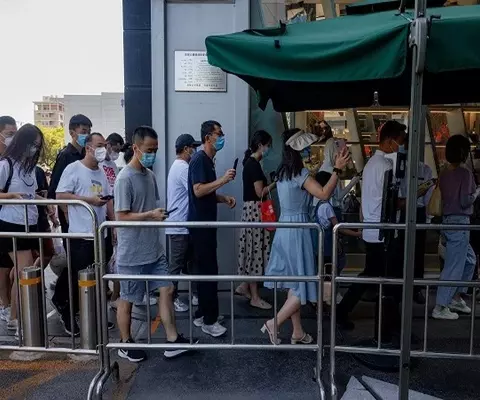The stringent Covid 19 induced lockdown imposed in several cities in China’s Shenzhen that borders Hong Kong couldn’t have come at a worse time. Shenzhen is home to multiple tech giants including Huawei and Oppo. The lockdown is expected to severely strain the global supply chain network leading to slowing down of the economic recovery process. The global supply chain network had already started to crack up with Russia’s invasion of Ukraine.
China is facing one of the worst outbreaks of Covid 19 after successfully managing to contain its spread since 2020.
The Shenzhen administration has halted public transportation in the city. Non-essential businesses have also been asked to shut their operations through March 20.
Besides Shenzhen, Beijing has also imposed strict restrictions in Shanghai.
“Due to the war and the sanctions against Russia, there has been an acute shortage of containers for exporters along with rise in freight costs. Now with China imposing lockdowns in Shenzhen and Shanghai, the supply chain network would be further disrupted and this is a cause for concern,” Ajay Sahai, director general and CEO, Federation of Indian Export Organisations (FIEO), told India Narrative.
On Monday, Taiwanese major Foxconn, one of Apple’s biggest suppliers, announced suspension of its operations in Shenzhen. Shenzhen is Foxconn’s second largest manufacturing centre in China, the largest being Zhengzhou in Henan Province.
"The operation of Foxconn in Shenzhen, China has been suspended from March 14 onwards in compliance with the local government's new COVID-19 policy," the Taiwanese company said in a statement.
The New York Times said in a report that the measures in China, home to about one-third of global manufacturing, are disrupting the production of finished goods like Toyota and Volkswagen cars and Apple’s iPhones, as well as components such as circuit boards and computer cables.
According to international law firm Holland & Knight, Russian-related sanctions are already beginning to impact all shipping segments, including commodity traders, tankers, containers, dry bulk and gas. “The market consequences will likely continue to exacerbate supply chain congestion as vessels are diverted or delayed,” it said.
“China is still using a zero-Covid policy. But what Covid is teaching all of us is that a highly transmissible variant may be much more difficult to contain without a dramatic impact on the economy,” IMF chief Kristalina Georgieva earlier said at the World Economic Forum. She added that Beijing should reassess its policy especially since the Omicron variant is less severe than the previous ones.




















